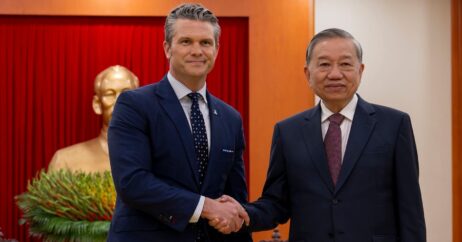The world bids farewell to one of the greatest actors of all time, Gene Hackman, who passed away on February 26, 2025, at the age of 95. The legendary actor, whose name became synonymous with versatility and depth in performance, was found at his home in Santa Fe, New Mexico, accompanied by his wife, Betsy Arakawa, and their beloved dog. Authorities have stated that no foul play was involved, though the exact cause of death is still under investigation. His passing leaves a deep void in the entertainment industry, where he reigned for decades as one of Hollywood’s most respected and admired figures.
Born Eugene Allen Hackman on January 30, 1930, in San Bernardino, California, he faced a difficult childhood shaped by personal struggles and financial instability. His parents divorced when he was young, and after living with his mother in Danville, Illinois, he decided to enlist in the U.S. Marine Corps at the age of 16. The discipline and resilience he acquired during his service would later define his approach to acting. Following his military career, Hackman pursued a passion that would change his life forever—acting.
In the mid-1950s, he enrolled at the Pasadena Playhouse, where he met Dustin Hoffman. At the time, neither was considered a promising talent, but they persevered in the face of criticism. It wasn’t until 1967 that Hackman had his breakthrough role as Buck Barrow in Bonnie and Clyde, which earned him an Academy Award nomination for Best Supporting Actor. This recognition catapulted him into the Hollywood spotlight and set the stage for an illustrious career spanning more than four decades.
Hackman’s ability to fully immerse himself in his characters became his defining trait. Whether playing morally ambiguous antiheroes, hardened law enforcement officers, or corrupt villains, he delivered performances that felt strikingly real. His portrayal of the relentless detective Popeye Doyle in The French Connection (1971) won him his first Academy Award for Best Actor and solidified his status as a Hollywood powerhouse. He continued to impress audiences with his role in The Poseidon Adventure (1972) and then captivated a new generation with his portrayal of the cunning Lex Luthor in Superman (1978) and Superman II (1980).
The 1980s and 1990s saw him take on increasingly complex roles, earning further acclaim for films such as Mississippi Burning (1988) and Unforgiven (1992), the latter of which won him his second Academy Award. Whether he was playing a ruthless sheriff, a conflicted father, or a seasoned criminal, Hackman brought depth and nuance to every role. His presence on screen was magnetic, commanding attention with his subtle facial expressions, powerful voice, and ability to convey emotion with unparalleled authenticity.
As the years went on, Hackman continued to take on challenging roles, starring in Get Shorty (1995), The Birdcage (1996), and The Royal Tenenbaums (2001). His final film appearance was in Welcome to Mooseport (2004), after which he announced his retirement from acting. Despite stepping away from the limelight, his influence on the industry never waned. Instead of making films, he turned to writing, authoring several novels that reflected his deep understanding of storytelling.
His personal life was one of devotion and resilience. He was married twice—first to Fay Maltese, with whom he shared three children, and later to Betsy Arakawa, who remained by his side until his passing. Though he kept his private life away from media scrutiny, those who knew him personally described him as a man of humility, discipline, and unwavering commitment to his craft.
Throughout his career, Hackman amassed an array of prestigious awards, including two Academy Awards, four Golden Globe Awards, and two BAFTA Awards. His performances were more than just acting; they were masterclasses in character immersion, leaving a profound impact on generations of actors who followed in his footsteps.
The loss of Gene Hackman is a tragedy for the film industry, yet his legacy remains indelible. His performances continue to inspire, his films remain timeless, and his influence will live on in the annals of Hollywood history.








